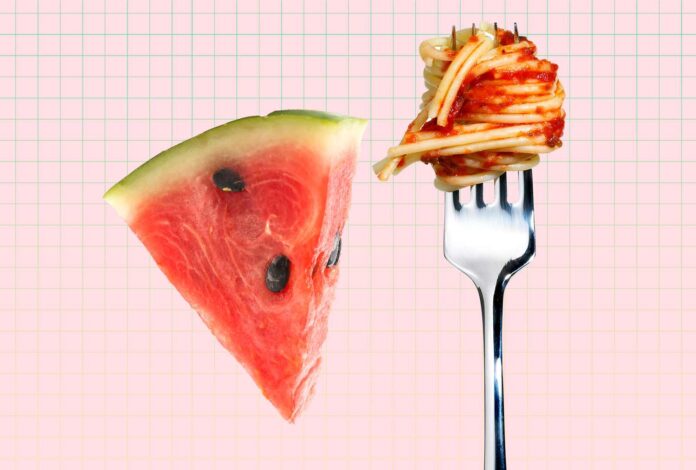Millions of Americans go on a diet every year for various reasons, whether it’s to better manage a health condition or simply want to feel better in their skin. When you start looking at the endless list of diets on the Internet, you may ask yourself: Is this actually healthy for me?
Two diets that have been in the spotlight for some time and have had countless studies published are often confused: the low-glycemic diet and the low-carb diet. While both aim to improve health, each comes with a unique set of differences. In this article, we discuss each diet, sift through the research and explain the healthy option to achieve your goals.
What is a low glycemic diet?
Maybe at your last annual checkup, your doctor advised you to start “watching your carbohydrate intake” as your most recent HbA1c (which is your three-month average of blood sugar levels, according to MedlinePlus) crept up to dangerous levels. After doing some research, you discover the low glycemic diet.
The low-glycemic diet doesn’t require you to cut carbs (ouch!), but it emphasizes choosing low-glycemic foods over high-glycemic foods. Foods that contain carbohydrates — anything from an apple to a bowl of pasta salad to a cookie — are all rated from 0 to 100 on the glycemic index.
Foods with a low glycemic index (GI) of 55 or less are mostly fruits, vegetables, beans, yogurt and nuts. These foods are considered low glycemic and given the green light to add them regularly to your eating pattern. On the other hand, high GI foods are those with a GI of 70 or higher. These foods include things like baked goods, white rice, white bread, and some cereals.
According to the Glycemic Index Foundation, foods with a high glycemic index can cause your blood sugar to rise and then fall quickly, which is why they should be enjoyed in a limited manner. A low-GI food will help keep your blood sugar levels stable and may help you lose weight, improve your energy levels and reduce your risk of certain health conditions including diabetes.
However, this approach comes with limitations. First, the diet does not look at food as a whole, and some highly nutritious foods have a high glycemic index. For example, watermelon has a glycemic index of 70; However, this juicy fruit is low in total calories, high in antioxidants and water, and most nutrition experts agree that it is a good choice for many healthy eating patterns. Second, the low-glycemic diet places a heavy emphasis on portion sizes, which can be easy to miscalculate. Finally, not all foods are listed on the GI index, so you may be surprised when you can’t find a specific GI index for your favorite food.
What is a low-carb diet?
A diet that limits the number of carbohydrates you can eat daily is a low-carb diet. The low-carb diet has become so popular that there are many variations such as the Atkins diet, the Whole30 diet, and the South Beach diet – all of which emphasize low-carb intake but also come with their own set of diet rules.
In general, a low-carb diet limits total carbohydrate intake to a percentage of total daily calories or provides a specific total amount of grams to consume each day. Low carb diet A low-carb diet is defined as less than 26% of daily calories from carbohydrates or less than 130 grams of total carbohydrates per day. The goal of this diet is to aid in weight loss and help manage blood sugar levels.
However, a low-carb diet is different from a keto diet. The keto diet is very Low-carb, allocate less than 10% of your total calories coming from carbs or roughly 20 to 50 grams of carbs per day, which is barely enough to eat a banana! However, here in eating well, We recommend that you limit less than 40% of your calories from carbohydrates or less than 120 grams of carbohydrates per day. Reducing your carbohydrate intake too much may prevent you from getting enough vitamins, minerals and fiber found in carbohydrate-rich foods such as fruits, vegetables, whole grains and legumes. Additionally, eating some foods often recommended on the keto diet, such as bacon, butter, or full-fat cheese, may actually have adverse effects on heart and digestive health if eaten in excess over time.
What is healthier?
Which raises the question of which diet – the low-glycemic diet or the low-carb diet – is the healthier choice? Let’s take a closer look at the research.
The low-glycemic diet has been found to be better for controlling cholesterol and blood sugar, especially for people with or at risk of diabetes, than other diets. According to a 2019 meta-analysis published in American Journal of Clinical Nutrition, participants who followed a low-glycemic index diet had lower HbA1c, fasting blood glucose, total cholesterol, and LDL cholesterol compared to other diets. Another 2022 meta-analysis published in the journal Nutrients found that the low-glycemic diet was also effective in lowering blood sugar levels and slightly reducing body mass.
On the other hand, a low-carb diet has been promoted for its weight loss benefits. But when compared to a low-fat diet, there was no significant difference in outcomes between participants, according to a 2022 meta-analysis published in the journal the border. The researchers also found no difference in health benefits (such as blood sugar or cholesterol levels) when low-fat and low-carbohydrate diets were placed side by side. Furthermore, a low-carb diet may put a damper on your mood. A 2023 meta-analysis published in Journal of Affective Disorders found that a low-carb diet significantly increased anxiety when participants’ diet consisted of less than 26% carbohydrate intake. The American Heart Association also ranked low-carb and very low-carb diets, such as the keto diet, at the bottom of its list of diets that promote heart health.
Bottom line
According to recent research, a low-GI diet may provide more health benefits than a low-carb diet. Both low-glycemic and low-carb diets have the potential for weight loss. However, the low-glycemic diet shows greater benefits in lowering blood sugar and cholesterol levels and is not as restrictive. Additionally, a low-carb diet may affect a person’s mood, has not been proven to promote heart health, and is not a sustainable diet plan to follow long-term.
As a registered dietitian, I’m not one to promote fad diets or any specific diet. While a low-glycemic diet may be beneficial for some, it may not be suitable for everyone. Diets have limitations and drawbacks. Additionally, what may work for you may not work for someone else. Nutrition is personal and each person has a unique set of needs, medical history, food preferences, and goals that should be considered before implementing any type of meal plan. It is always recommended to consult with a registered dietitian before starting any diet or meal plan.
#Lowglycemic #diet #lowcarb #diet #healthier


































